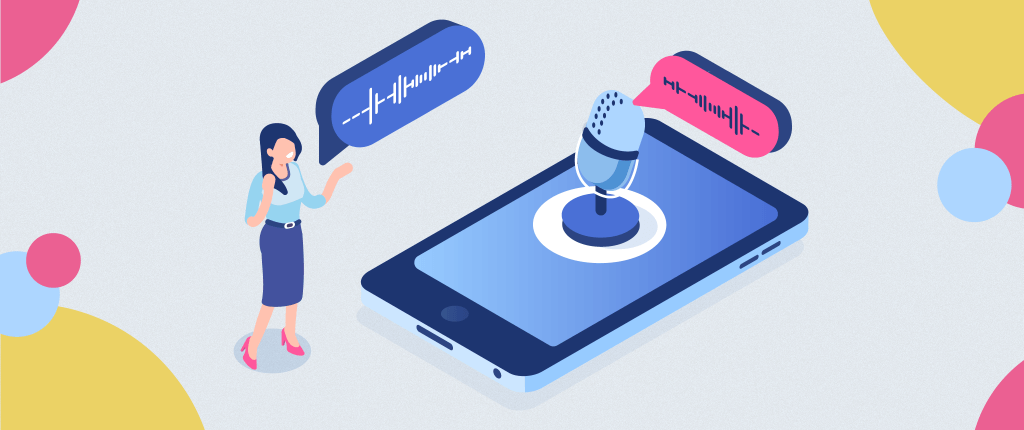Our voice. One of the most important things we utilize in our day-to-day lives. Having a voice is a privilege. Some of us are privileged enough to have a voice. We need it to communicate with others. For example, we need it to talk to others, ask others for help, talk to our pets with it, speak up about changes with it, and now, with technology, we can use it to do whatever we desire. For example, with the invention of AI, we can now talk to robots, and they can do *almost* whatever we ask them to. They can understand our human voice, and will speak back to us in the same language we ask them to. They can honestly help with our communication skills! This has become very convenient but also extremely hurtful because over the past couple of years humans have grown to be extremely lazy, showing this survey, by the Physical Activity Council, asked a chunk of Americans to indicate which of 104 activities they participate in, ranging from ping-pong to baseball to sledding. Those conducting the survey explained their findings in a press release. That “82.7 million Americans age 6 and up, or 28.3%, were physically inactive in 2014. This is an increase of 0.7% from 2013, where 80.2 million, or 27.6%, of the population, were inactive. So, why are Americans becoming extremely lazy? What about people that have disabilities, and are forced to be “lazy”? This is where the technology of Speech Recognition comes into play.
Speech Recognition, also known as Voice Recognition, is a computer software program or hardware device with the ability to decode the human voice. Voice recognition is commonly used to operate a device, perform commands, or write without having to use a keyboard, mouse, or press any buttons. The first official example of our modern speech recognition technology was Audrey, a system designed by Bell Laboratories in the 1950s. But, it occupied an entire room and was only able to recognize 9 (numbers 1-9) digits with 90% accuracy. It was meant to help toll operators take phone calls, but the high cost and variety of voices made it impractical. It took another 12 years to develop IBM’s Shoebox which can understand 16 words, but users had to make pauses and speak slowly to make sure the machine understood what it said. To summarize, throughout the years, speech recognition has developed to where it can understand acoustics and linguistics, and filter out the human voice. One of the first major examples of this was Google’s Voice Search in 2009, where it was an app where users could search with their voice. This made one of the first major advancements where speech recognition was in the hands of millions of people. It was also significant because the processing power could be offloaded to its data centers. Not only that, Google was collecting data from billions of searches which could help it predict what a person is actually saying. At the time Google’s English Voice Search System included 230 billion words from user searches. Apple then launched Siri in 2011 and then launched a butterfly effect of numerous other speech recognition apps coming onto the scene. It launched an outburst of smart assistants and was used in GPS for navigation. But with all new inventions, there can be some horrific flaws…
Some risks with Speech Recognition are that speech recognition apps have to listen to your voice in order to better understand you, or some assistants have a “dedicated voice feature” for each family member, so they can differentiate between each family member. However, this has caused a lot of privacy concerns over the years, starting with Amazon’s Alexa. There have been many reports online, stating that Alexa is “always listening to what you say” and eavesdropping on your conversation. One example is that Alexa keeps a record of what it hears every time an Echo speaker activates. It’s supposed to record only with a “wake word” — “Alexa!” — but anyone with one of these devices knows they go rogue. I counted dozens of times when mine recorded without a legitimate prompt. (Amazon says it has improved the accuracy of “Alexa” as a wake word by 50 percent over the past year.). Apparently, one of Amazon.com’s Alexa-powered Echo devices in their house had silently sent recordings to the caller without the family’s permission, according to KIRO 7, a news station covering Seattle and western Washington state that first reported the story. Amazon then quickly fixed the vulnerability after Alexa was awakened without someone saying the wake word. According to Amazon, they said in an emailed statement to The Washington Post on Thursday afternoon that the Echo woke up when it heard a word that sounded like “Alexa.” “The subsequent conversation was heard as a ‘send message’ request. At which point, Alexa said out loud ‘To whom?’ At which point, the background conversation was interpreted as a name in the customer’s contact list.” This just goes to show how privacy is not a concern for Amazon, considering they have collected over 90,000 Alexa recordings, and gather a vast array of information from their customers. Another example of this is Facebook, where they were in some controversy because they were accused of listening in on conversations, and marketing ads towards them related to their conversations. Facebook has denied these claims, however. Another risk of Speech Recognition is that the technology is not yet perfect. Because of this, many voice assistants can incorrectly hear and give you false results, depending on what you ask for. For example, a toddler asked Alexa for a song, saying “digger digger”, but instead Alexa can not recognize it and translates it to porn, and suddenly plays a porno radio station. Luckily, the parents found out in time and were able to shout “No! No! No!” to Alexa, seemingly turning it off. However, if the parents were not there, Alexa could have played it, or translated the toddler’s words into much much worse. Another example of this is very recently where a toddler asked Alexa for “a challenge to do.” It found results on the web for what was called “The Penny Challenge” that began circulating on TikTok and other social media sites a year ago. “Plug in a phone charger about halfway into a wall outlet, then touch a penny to the exposed prongs,” the smart speaker said. This shows that speech recognition, and smart assistants resulting from speech recognition are unfiltered, so ultimately there could be dangerous circumstances like this happening in the future since speech recognition still has a long way to go. One last risk, however, is that it can be physically damaging to Americans across the globe by encouraging laziness. According to scitechdaily.com, it states, “New research estimates that the average American does about 30 minutes less physical activity a day than an American 200 years ago. That’s the conclusion reached by researchers from the lab of evolutionary biologist Daniel E. Lieberman after using data on falling body temperature in the U.S. and changing metabolic rates to measure declining levels of physical activity in the U.S. since the industrial revolution. The work is described in Current Biology. The scientists found that since 1820, resting metabolic rate (or the total number of calories burned when the body is completely at rest) has declined by about 6 percent for Americans, which translates to about 27 minutes per day of less moderate to vigorous physical activity than 200 years ago. The reason, the authors say, is largely because of technology.” This goes to show that because of new technological innovations, such as smart assistants and machines, have effectively caused Americans to become fatter because of the causes of speech recognition. There have also been talks that Americans have now become dumber than ever before because everything is digital now, and there is no need for map reading anymore, or trying to learn math since everything can be found out with a quick Google search. The downside of speech recognition is it has caused us to have the invention of smart assistants, and everything is faster when using our voice instead, so it introduces convenience. But, can that also be a good thing?
The benefits of speech recognition are that it has introduced a new way of convenience. People no longer have to get up more and can do less physical activity. It depends on how you view this, as some may view this as a good thing and some may view this as a bad thing. For example, you can use Alexa to call an Uber. Also, it has made life way easier, with navigation and travel being easier to use with just using your voice, which requires little to no energy at all. It has also increased productivity in businesses and healthcare industries, with information being easier to capture with speech, and it helps typing on the computer easier if you have a disability as well. It can soon start solving problems with speech or sight, if not can ALREADY solve problems as well. It can perform critical commands, and operate things in your house, such as lighting, fans, television, etc. Also, companies can record customers’ calls if they want to improve their system, or want to survey what kind of help customers need help with the most in their day-to-day lives, so they can properly hire staff to fulfill demands. Another thing is that search engines like Google have the ability to voice search, so people with disabilities can search. Lastly, it can enable hands-free technology with GPS navigation leading to safer driving, as well as aiding the hearing or visually impaired. In the future, speech recognition may become so good that we may have personal assistant robots in our homes! Right now, they can follow us around via items such as AirPods, Galaxy Buds, Pixel Buds, or Echo Buds. They each have their own voice assistant system like Siri, Google, Cortana, Bixby, or Alexa. Right now, companies are striving to make better filters for their smart assistants, so that speech recognition can be easily understood even when there is strong background noise. Also, these voice assistants can make a call for help, if you are physically unable to. For example, you can ask Alexa to call for help, and it will call an emergency contact. This makes it very easy to call for help if you are running, or if you are in a dangerous environment where someone may hear you. A neat feature about Alexa is that it will whisper to you if you whisper to her. If you need to be quiet in the middle of the night or are in a deadly situation. However, can it get any better from here?
So, what about the future? Should YOU worry about Speech Recognition? Well, not really. Although some companies have a history, like Amazon, of listening to your conversations, there is a mute button on every single device, so you can enable it if you have privacy concerns. You can also go back to the standard typing via the keyboard on your phone, and the voice typing is there for convenience. As shown in these charts, not many use speech recognition in their day-to-day lives and the majority of people never use a smart speaker to search for information. As for the future, most virtual assistants will be able to let us track packages, research products, and add items to the cart, things that were a much bigger hassle before to do. However, banks may start using voice recognition to verify their users, as well as making banking easy, and getting support easy, as phone support (customer service) in a lot of companies already has most voice recognition systems built into it, and will always say “These calls are being recorded” to better their system. This may even fully transition into the automotive industry and, as stated before, the healthcare or government industry. Though there are current flaws now, and lots of privacy concerns will arise once the technology for speech recognition gets better, rest assured, there will be many complaints and lawsuits headed, as well as technology to combat companies listening to you as well. For example, Apple’s iPhone recently introduced their new ‘orange dot’ feature where it warns you if an app is listening to you. This may be on Spotify since they use speech recognition technology if you want to play or search for a song, or it could be any other app as well. Apple takes privacy very seriously, so many companies like Samsung may follow suit in what they are doing. In the future, there could be small assistant robots that could follow us around everywhere like they are dogs! For example, right now, Amazon has unveiled their Astro robot which can follow you around, use AI, and voice recognition technology as well as monitor your home, keep in touch with family, computer vision, and sensor technology as well. This isn’t the norm right now, but soon it may be. There may be a long way to go however before everyone can have access to these, so that is a plus…
Overall, speech recognition is a useful thing to have for some people. The tech for it, and the companies behind it may all be flawed, but it helps the visual and hearing impaired help navigate. For example, Amazon released their Echo Show which is an Alexa with a digital screen. That can help the hearing impaired if they need help with anything. Also, it can be helpful for anyone with a disability for that matter. Speech recognition is most likely being improved by the second, and although it causes privacy concerns, it can cause so much more inconvenience. Right now, you can stick to manual keyboard typing if that floats your boat. There is no technology that will fully replace us with robots, but it may come. There is no need to worry at the moment, but we do not know what to expect, so we should always be fully prepared, mentally and physically. Please share this article with friends, family, and employers, since a single share may help millions of people stressed from this, and can inform many people as well. Please share this to anyone concerned with this topic as well, and relieve stress caused by speech recognition overall.

Source: Medium.com, A short history of speech recognition.



Leave A Comment